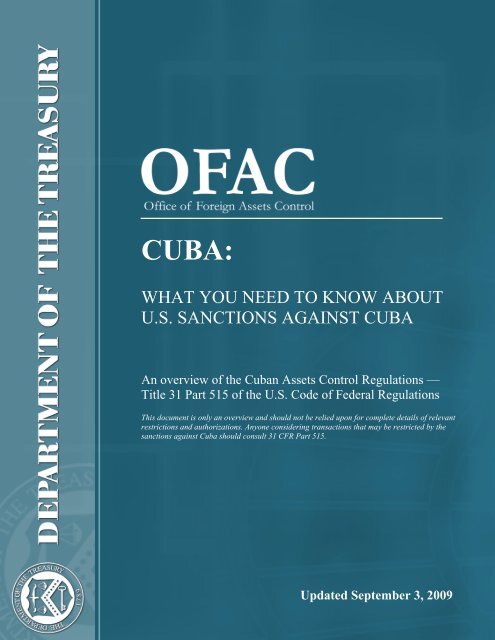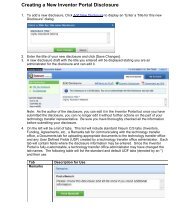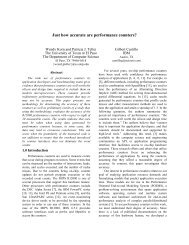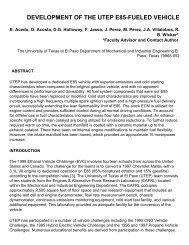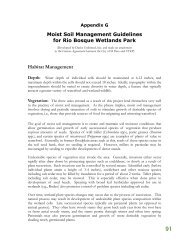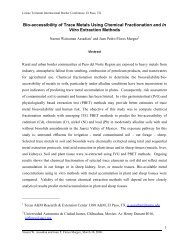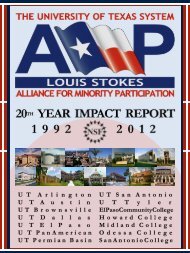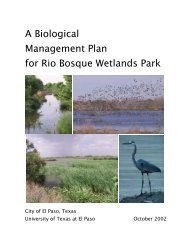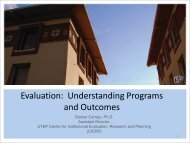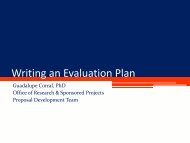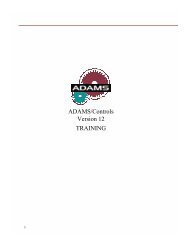what you need to know about us sanctions against cuba - Office of ...
what you need to know about us sanctions against cuba - Office of ...
what you need to know about us sanctions against cuba - Office of ...
You also want an ePaper? Increase the reach of your titles
YUMPU automatically turns print PDFs into web optimized ePapers that Google loves.
ContentsI. INTRODUCTION: WHERE ARE THE RULES AND WHO MUST COMPLY? 3II. WHO CAN GO TO CUBA PURSUANT TO A GENERAL LICENSE? 3A. PERSONS VISITING “CLOSE RELATIVES” WHO ARE NATIONALS OF CUBA 4B. PERSONS VISITING “CLOSE RELATIVES” WHO ARE U.S. GOVERNMENT EMPLOYEES ASSIGNED TO THE U.S.INTERESTS SECTION IN HAVANA, CUBA 4C. JOURNALISTS AND SUPPORT PERSONNEL 4D. OFFICIAL U.S. AND FOREIGN GOVERNMENT TRAVELERS (TRAVELING ON OFFICIAL BUSINESS) 4E. OFFICIALS OF INTERGOVERNMENTAL ORGANIZATIONS OF WHICH THE UNITED STATES IS A MEMBER(TRAVELING ON OFFICIAL BUSINESS) 5F. FULL-TIME PROFESSIONALS ENGAGING IN TRAVEL RELATED TO: 51. Pr<strong>of</strong>essional research 52. Pr<strong>of</strong>essional meetings organized by an international pr<strong>of</strong>essional organization 5G. EMPLOYEES OF A U.S. TELECOMMUNICATIONS SERVICES PROVIDER OR AN ENTITY REPRESENTING SUCH APROVIDER 5H. EMPLOYEES OF A PRODUCER OR DISTRIBUTOR OF AGRICULTURAL COMMODITIES, MEDICINE, OR MEDICALDEVICES OR AN ENTITY REPRESENTING SUCH A FIRM 6III. WHO CAN GO TO CUBA PURSUANT TO A SPECIFIC LICENSE? 6A. EDUCATIONAL ACTIVITIES 61. Participation in a structured educational program 62. Noncommercial, Cuba-related academic research 63. Participation in a formal course <strong>of</strong> study at a Cuban academic institution 74. Teaching at a Cuban academic institution 75. Sponsorship <strong>of</strong> a Cuban scholar 76. Organization <strong>of</strong> and preparation for the educational activities described above 7B. RELIGIOUS ACTIVITIES 7C. HUMANITARIAN PROJECTS AND SUPPORT FOR THE CUBAN PEOPLE 7D. FREE-LANCE JOURNALISM 8E. PROFESSIONAL RESEARCH AND PROFESSIONAL MEETINGS 8F. PUBLIC PERFORMANCES, ATHLETIC AND OTHER COMPETITIONS, AND EXHIBITIONS 8G. ACTIVITIES OF PRIVATE FOUNDATIONS OR RESEARCH OR EDUCATIONAL INSTITUTIONS 8H. ACTIVITIES RELATED TO THE EXPORTATION, IMPORTATION, OR TRANSMISSION OF INFORMATION ORINFORMATIONAL MATERIALS 9I. ACTIVITIES RELATED TO U.S. EXPORTATIONS TO CUBA 9J. PERSONS VISITING “CLOSE RELATIVES” WHO ARE NEITHER CUBAN NATIONALS NOR U.S. GOVERNMENTEMPLOYEES ASSIGNED TO THE U.S. INTERESTS SECTION IN HAVANA, CUBA 9IV. WHAT CUBA-RELATED TRAVEL TRANSACTIONS ARE AUTHORIZED BY OFACLICENSES? 9A. GENERALLY 9B. VESSELS USED FOR TRAVEL 10C. TRAVEL SERVICE PROVIDERS 10D. CARRIER SERVICE PROVIDERS 10V. WHAT CAN BE BROUGHT BACK FROM CUBA? 10VI. SENDING OR CARRYING MONEY TO CUBA: REMITTANCES 11A. FAMILY REMITTANCES 11B. EMIGRATION-RELATED REMITTANCES 11C. REMITTANCES FROM BLOCKED ACCOUNTS 11D SPECIFIC LICENSES MAY BE ISSUED PURSUANT TO SECTION 515.570(D) TO ALLOWREMITTANCES TO: 12Created An Overview on 9/3/2009 <strong>of</strong> the Cuban 1:41 PM Assets Control Regulations Page 2 <strong>of</strong> 17Updated January on September 24, 2007 3, 2009
H. Employees <strong>of</strong> a producer or distribu<strong>to</strong>r <strong>of</strong> agricultural commodities,medicine, or medical devices or an entity representing such a firmIndividuals regularly employed by a producer or distribu<strong>to</strong>r <strong>of</strong> agricultural commodities, medicine,or medical devices or an entity duly appointed <strong>to</strong> represent such a producer or distribu<strong>to</strong>r areauthorized <strong>to</strong> engage in Cuba travel-related transactions incident <strong>to</strong> the commercial marketing,sales negotiation, accompanied delivery, or servicing in Cuba <strong>of</strong> such items, provided that theirschedule <strong>of</strong> activities does not include free time, travel, or recreation in excess <strong>of</strong> that consistentwith a full work schedule and provided the activities appear consistent with the export or re-exportlicensing policy <strong>of</strong> the Department <strong>of</strong> Commerce. Please see section 515.533(e) <strong>of</strong> the Regulationsfor reporting and other requirements concerning these travel-related transactions.III. WHO CAN GO TO CUBA PURSUANT TO A SPECIFIC LICENSE?OFAC considers specific license requests on a case-by-case basis related <strong>to</strong> travel for the activitieslisted below. Please refer <strong>to</strong> the Application Guidelines for help with determining whether <strong>you</strong>may be eligible for a specific license. Individuals wishing <strong>to</strong> obtain a specific license m<strong>us</strong>t submitan application <strong>to</strong> OFAC, prepared either in letter format or <strong>us</strong>ing OFAC’s au<strong>to</strong>mated applicationform, which is available on OFAC’s website (www.treas.gov/<strong>of</strong>ac) athttps://<strong>cuba</strong>travel.<strong>of</strong>ac.treas.gov/. Applicants m<strong>us</strong>t address the criteria set forth in the relevantsection <strong>of</strong> the Application Guidelines. Applications should be mailed <strong>to</strong> the Licensing Division,<strong>Office</strong> <strong>of</strong> Foreign Assets Control, U.S. Department <strong>of</strong> the Treasury, 1500 Pennsylvania Avenue,NW, Washing<strong>to</strong>n, DC 20220.A. Educational activitiesOFAC may issue specific licenses for up <strong>to</strong> one year in duration <strong>to</strong> accredited U.S. undergraduateor graduate degree-granting academic institutions authorizing the institution, its students enrolledin an undergraduate or graduate degree program at the institution, and its full-time permanentemployees <strong>to</strong> engage, under the a<strong>us</strong>pices <strong>of</strong> the institution, in travel-related transactions incident <strong>to</strong>the activities listed below. Note that an individual relying on an academic institution’s licensem<strong>us</strong>t carry a letter from the licensed institution (the required content <strong>of</strong> the letter varies based onthe type <strong>of</strong> activity). Please see the Application Guidelines and section 515.565 <strong>of</strong> the Regulationsfor more information on specific licenses for educational activities and related requirements. Notethat for individuals whose academic institutions have not obtained a specific license, OFAC mayissue a specific license <strong>to</strong> authorize the individual <strong>to</strong> engage in travel-related transactions incident<strong>to</strong> the activities described in section III.A.2 or section III.A.3, below.1. Participation in a structured educational programParticipation in a structured educational program that includes at least 10 weeks in Cuba as part <strong>of</strong>a course <strong>of</strong>fered at the licensed U.S. undergraduate or graduate institution.2. Noncommercial, Cuba-related academic researchNoncommercial academic research in Cuba specifically related <strong>to</strong> Cuba and for the purpose <strong>of</strong>obtaining a graduate degree (i.e., the proposed research is independent research for writing amaster’s thesis, doc<strong>to</strong>ral dissertation, or similar document).Created An Overview on 9/3/2009 <strong>of</strong> the Cuban 1:41 PM Assets Control Regulations Page 6 <strong>of</strong> 17Updated January on September 24, 2007 3, 2009
515.575 <strong>of</strong> the Regulations for more information on specific licenses for support for the Cubanpeople and humanitarian projects.D. Free-lance journalismSpecific licenses may be issued for travel-related transactions incident <strong>to</strong> research in Cuba for afree-lance article, provided that certain conditions are met. Licenses may be issued for multipletrips over an extended period <strong>of</strong> time by applicants demonstrating a significant record <strong>of</strong> free-lancejournalism. Please see the Application Guidelines and section 515.563(b) <strong>of</strong> the Regulations formore information on specific licenses for free-lance journalism.E. Pr<strong>of</strong>essional research and pr<strong>of</strong>essional meetingsSpecific licenses may be issued for travel-related transactions incident <strong>to</strong> pr<strong>of</strong>essional research or<strong>to</strong> attend a pr<strong>of</strong>essional meeting that does not meet the requirements <strong>of</strong> the relevant general license(described in section II.F.2) may apply for a specific license <strong>to</strong> engage in these activities. Licensesmay be issued for multiple trips over an extended period <strong>of</strong> time by applicants demonstrating asignificant record <strong>of</strong> research. Please see the Application Guidelines and section 515.564(b) <strong>of</strong>the Regulations for more information on specific licenses for pr<strong>of</strong>essional research and meetings.F. Public performances, athletic and other competitions, and exhibitionsSpecific licenses may be issued for travel-related transactions incident <strong>to</strong> athletic competition byamateur or semi-pr<strong>of</strong>essional athletes or teams traveling <strong>to</strong> Cuba <strong>to</strong> participate in an athleticcompetition held under the a<strong>us</strong>pices <strong>of</strong> the relevant international sports federation. To qualify, theU.S. participants m<strong>us</strong>t have been selected for the competition by the relevant U.S. sportsfederation, and the competition m<strong>us</strong>t be one that is open for attendance and, in relevant situations,participation by the Cuban public.Specific licenses may also be issued for travel-related and other transactions incident <strong>to</strong>participation in a public performance, athletic competition not covered by the above criteria, nonathleticcompetitions, or exhibition in Cuba. The event m<strong>us</strong>t be open for attendance and, inrelevant situations, participation by the Cuban public, and all pr<strong>of</strong>its from the event after costs m<strong>us</strong>tbe donated <strong>to</strong> an independent nongovernmental organization in Cuba or a U.S.-based charity, withthe objective, <strong>to</strong> the extent possible, <strong>of</strong> benefiting the Cuban people. Please see the ApplicationGuidelines and section 515.567(b) <strong>of</strong> the Regulations for more information regarding these specificlicenses.G. Activities <strong>of</strong> private foundations or research or educational institutionsSpecific licenses may be issued for travel-related transactions incident <strong>to</strong> activities by privatefoundations or research or educational institutes that have an established interest in internationalrelations <strong>to</strong> collect information related <strong>to</strong> Cuba for noncommercial purposes. Licenses may beissued for multiple trips over an extended period <strong>of</strong> time. Please see the Application Guidelinesand section 515.576 <strong>of</strong> the Regulations for more information on specific licenses for the activities<strong>of</strong> private foundations or research or educational institutions.Created An Overview on 9/3/2009 <strong>of</strong> the Cuban 1:41 PM Assets Control Regulations Page 8 <strong>of</strong> 17Updated January on September 24, 2007 3, 2009
H. Activities related <strong>to</strong> the exportation, importation, or transmission <strong>of</strong>information or informational materialsSpecific licenses may be issued for travel-related transactions incident <strong>to</strong> the exportation,importation, or transmission <strong>of</strong> information or informational materials. Please see the ApplicationGuidelines and section 515.545 <strong>of</strong> the Regulations for more information on these specific licenses.I. Activities related <strong>to</strong> U.S. exportations <strong>to</strong> CubaSpecific licenses may be issued authorizing travel-related transactions incident <strong>to</strong> the marketing,sales negotiation, accompanied delivery, or servicing in Cuba <strong>of</strong> exports that appear consistent withthe export or re-export licensing policy <strong>of</strong> the Department <strong>of</strong> Commerce and are not authorized bythe general licenses described above in sections II.G and II.H. (See section 515.533(g) <strong>of</strong> theRegulations.)J. Persons visiting “close relatives” who are neither Cuban nationals norU.S. government employees assigned <strong>to</strong> the U.S. Interests Section inHavana, CubaSpecific licenses may be issued for travel-related and other transactions incident <strong>to</strong> travel <strong>to</strong> visit a“close relative” (see section II.A for a definition <strong>of</strong> “close relative”) in Cuba who is neither anational <strong>of</strong> Cuba nor a U.S. Government employee assigned <strong>to</strong> the U.S. Interests Section in Havana(see section 515.561(b) <strong>of</strong> the Regulations).IV. WHAT CUBA-RELATED TRAVEL TRANSACTIONS ARE AUTHORIZED BY OFACLICENSES?A. GenerallyUnless authorized by a general or specific license, any person subject <strong>to</strong> U.S. jurisdiction whoengages in any Cuba travel-related transaction violates the Regulations. Persons authorized <strong>to</strong>engage in Cuba travel-related transactions are allowed <strong>to</strong> engage in all transportation-relatedtransactions ordinarily incident <strong>to</strong> travel <strong>to</strong> and from (not within) Cuba without any expenditurelimitations. Authorized travelers also may engage in all transactions ordinarily incident <strong>to</strong> travelanywhere within Cuba, such as hotel accommodations, meals, local transportation, and goodspersonally <strong>us</strong>ed by the traveler in Cuba, provided that the <strong>to</strong>tal for such expenses does not exceedthe State Department “per diem rate” Allowance for Havana, Cuba (http://aoprals.state.gov), inplace during the period that the travel takes place (travelers can check the current per diem rate onthe Internet at ) (see section 515.560(c) <strong>of</strong> theRegulations).Pursuant <strong>to</strong> the separate travel sections referenced above, most authorized travelers may also spendadditional money for transactions directly related <strong>to</strong> the authorized activities in Cuba. Forexample, journalists traveling in Cuba under the journalism general license (described above atsection II.C) may spend money over and above the current per diem for extensive localtransportation, the hiring <strong>of</strong> cable layers, and other costs that are directly related <strong>to</strong> covering a s<strong>to</strong>ryin Cuba. Purchases <strong>of</strong> services unrelated <strong>to</strong> travel or a licensed activity, such as elective medicalservices, are prohibited. The purchase <strong>of</strong> publications, recorded m<strong>us</strong>ic, and other informationalmaterials is not restricted.Created An Overview on 9/3/2009 <strong>of</strong> the Cuban 1:41 PM Assets Control Regulations Page 9 <strong>of</strong> 17Updated January on September 24, 2007 3, 2009
B. Vessels <strong>us</strong>ed for travelAll persons onboard vessels, including the owner and crew, m<strong>us</strong>t be authorized travelers, as listedabove, <strong>to</strong> engage in travel-related transactions in Cuba. Unauthorized travelers may not purchasemeals, pay for transportation, lodging, dockage or mooring fees, cruising fees, visas, or entry orexit fees. Vessel owners are prohibited from carrying passengers <strong>to</strong> Cuba , and vessels carryinggoods or passengers <strong>to</strong> or from Cuba are prohibited from entering a U.S. port with such goods orpassengers on board absent authorization from OFAC (see section 515.207(b) <strong>of</strong> the Regulations).Vessels traveling <strong>to</strong> Cuba are also subject <strong>to</strong> regulations implemented by the Department <strong>of</strong>Commerce (see 15 CFR Parts 730 et. seq) and the United States Coast Guard (see33 CFR § 107.200 et. seq).C. Travel Service ProvidersAny person subject <strong>to</strong> U.S. jurisdiction who provides services akin <strong>to</strong> those <strong>of</strong> a travel agent (forexample, arranging travel <strong>to</strong>, from, or within Cuba, selling tickets for direct charter flights betweenthe United States and Cuba, reserving and selling accommodations for authorized travelers withinCuba, or other travel-related services involving property in which Cuba has an interest) m<strong>us</strong>t bespecifically licensed as a Travel Service Provider prior <strong>to</strong> providing any <strong>of</strong> these services (seesection 515.572(a)(1) <strong>of</strong> the Regulations). A traveler should not <strong>us</strong>e any travel agent or <strong>to</strong>uropera<strong>to</strong>r in the United States that is not a Travel Service Provider. A list <strong>of</strong> authorized TravelService Providers is available athttp://www.treas.gov/<strong>of</strong>fices/enforcement/<strong>of</strong>ac/programs/<strong>cuba</strong>/<strong>cuba</strong>_tsp.pdf. If <strong>you</strong> are interestedin being licensed as a Travel Service Provider, please consult Circular 2006, which is available onthe OFAC website (www.treas.gov/<strong>of</strong>ac) athttp://www.treas.gov/<strong>of</strong>fices/enforcement/<strong>of</strong>ac/programs/<strong>cuba</strong>/circ2006.pdf, for details on theService Provider Program requirements.D. Carrier Service ProvidersAny person subject <strong>to</strong> U.S. jurisdiction who <strong>of</strong>fers direct charter flights or vessel voyages betweenthe United States and Cuba m<strong>us</strong>t be specifically licensed as a Carrier Service Provider prior <strong>to</strong>providing such services (see section 515.572(a)(2) <strong>of</strong> the Regulations). A list <strong>of</strong> authorized CarrierService Providers is available athttp://www.treas.gov/<strong>of</strong>fices/enforcement/<strong>of</strong>ac/programs/<strong>cuba</strong>/<strong>cuba</strong>_tsp.pdf. If <strong>you</strong> are interestedin being licensed as a Carrier Service Provider, please consult Circular 2006, which is available onthe OFAC website (www.treas.gov/<strong>of</strong>ac) athttp://www.treas.gov/<strong>of</strong>fices/enforcement/<strong>of</strong>ac/programs/<strong>cuba</strong>/circ2006.pdf, for details on theService Provider Program requirements.V. WHAT CAN BE BROUGHT BACK FROM CUBA?No goods <strong>of</strong> Cuban origin, other than information or informational materials, may be transportedout <strong>of</strong> Cuba or brought in<strong>to</strong> the United States (see section 515.560(c)(3) <strong>of</strong> the Regulations). Thereare no limits on the import or export <strong>of</strong> informational materials. Such materials—including books,films, posters, pho<strong>to</strong>graphs, CDs—are statu<strong>to</strong>rily exempt from regulation under the embargo andmay be transported freely. However, blank tapes and blank CDs are not considered informationalmaterials (see sections 515.206(a) and 515.332 <strong>of</strong> the Regulations).Created An Overview on 9/3/2009 <strong>of</strong> the Cuban 1:41 PM Assets Control Regulations Page 10 <strong>of</strong> 17Updated January on September 24, 2007 3, 2009
VI. SENDING OR CARRYING MONEY TO CUBA: REMITTANCESA. Family remittancesPursuant <strong>to</strong> section 515.570(a) <strong>of</strong> the Regulations, persons subject <strong>to</strong> U.S. jurisdiction aged 18 orolder is authorized (by general license) <strong>to</strong> send remittances <strong>to</strong> a “close relative” (see section II.Afor a definition <strong>of</strong> “close relative”) in Cuba or Cuban nationals in a third country, provided that therecipient is not a prohibited <strong>of</strong>ficial <strong>of</strong> the Government <strong>of</strong> Cuba or a prohibited member <strong>of</strong> theCuban Communist Party, as defined in sections 515.337 and 515.338 <strong>of</strong> the Regulations. There isno limit on the amount <strong>of</strong> such authorized remittances or the frequency with which they may besent. The remittances m<strong>us</strong>t not be made from a blocked source and may not be for emigrationrelatedpurposes. An authorized traveler may carry up <strong>to</strong> $3,000 in authorized family remittances<strong>to</strong> Cuba (see section 515.560(c)(4) <strong>of</strong> the Regulations), and a national <strong>of</strong> Cuba departing the UnitedStates may carry back up <strong>to</strong> $3,000 received as remittances for him or herself (see section515.560(d)(2) <strong>of</strong> the Regulations). Carrying remittances on behalf <strong>of</strong> others is prohibited.B. Emigration-related remittancesPursuant <strong>to</strong> section 515.570(b) <strong>of</strong> the Regulations, persons subject <strong>to</strong> U.S. jurisdiction areauthorized (by general license) <strong>to</strong> send two one-time $1,000 remittances per payee <strong>to</strong> enable thepayee <strong>to</strong> emigrate from Cuba <strong>to</strong> the United States. One remittance <strong>of</strong> no more than $1,000 may besent before the payee has received a valid visa from the U.S. State Department or other approvedU.S. immigration documents for the purpose <strong>of</strong> covering the payee’s preliminary expensesassociated with emigrating from Cuba <strong>to</strong> the United States.Up <strong>to</strong> an additional $1,000 may be sent <strong>to</strong> a Cuban national for the purpose <strong>of</strong> enabling him or her<strong>to</strong> emigrate from Cuba <strong>to</strong> the United States, including for the purchase <strong>of</strong> an airline ticket andpayment <strong>of</strong> exit or third-country visa fees or other travel-related fees, after the Cuban national hasreceived a visa or other approved U.S. immigration document. A remitter m<strong>us</strong>t be able <strong>to</strong> providethe visa recipient’s full name, date <strong>of</strong> birth, visa number, and visa date <strong>of</strong> issuance at the time thisremittance is sent.These emigration-related remittances may not be made from a blocked source except as disc<strong>us</strong>sedbelow in section VI.C. There is no limit <strong>to</strong> the amount <strong>of</strong> authorized per payee emigration-relatedremittances that an authorized traveler may carry <strong>to</strong> Cuba but none may be carried until a visa hasbeen issued <strong>to</strong> each payee and the traveler can provide the visa recipient’s full name, date <strong>of</strong> birth,visa number, and visa date.C. Remittances from blocked accountsPursuant <strong>to</strong> a general license, all funds deposited in a blocked account in a banking institution inthe United States held in the name <strong>of</strong>, or in which the beneficial interest is held by, a national <strong>of</strong>Cuba as a result <strong>of</strong> a valid testamentary disposition, intestate succession, or payment from a lifeinsurance policy or annuity contract triggered by the death <strong>of</strong> the policy or contract holder may beremitted <strong>to</strong> that Cuban national provided that she or he is a “close relative” <strong>of</strong> the decedent. Suchinherited blocked funds may also be remitted as emigration-related remittances in accordance withsection VI.B. above <strong>to</strong> the Cuban national account-holder or beneficiary whether or not she or he isa “close relative” <strong>of</strong> the decedent. Up <strong>to</strong> $300 in any consecutive three-month period may also besent from any blocked account in a banking institution in the United States <strong>to</strong> a Cuban national in aCreated An Overview on 9/3/2009 <strong>of</strong> the Cuban 1:41 PM Assets Control Regulations Page 11 <strong>of</strong> 17Updated January on September 24, 2007 3, 2009
third country who is an individual in whose name, or for whose beneficial interest, the account isheld. None <strong>of</strong> these remittances from blocked accounts may be remitted <strong>to</strong> a prohibited <strong>of</strong>ficial <strong>of</strong>the Government <strong>of</strong> Cuba or a prohibited member <strong>of</strong> the Cuban Communist Party, as defined insections 515.337 and 515.338 <strong>of</strong> the Regulations. Please see section 515.570(c) <strong>of</strong> the Regulationsand section XII for more information on remittances from blocked accounts.D. Specific licenses may be issued pursuant <strong>to</strong> section 515.570(d) <strong>to</strong>allow remittances <strong>to</strong>:• Independent non-governmental organizations in Cuba;• A Cuban national in a third country in excess <strong>of</strong> $300 in any consecutive three-monthperiod from blocked accounts; or• Individuals in Cuba <strong>to</strong> facilitate their non-immigration travel <strong>to</strong> the United States.Humanitarian <strong>need</strong>, including illness or other medical emergency, m<strong>us</strong>t be demonstrated <strong>to</strong>obtain a specific license under this subsection.E. Remittance forwardersPursuant <strong>to</strong> section 515.572(c) <strong>of</strong> the Regulations, any person subject <strong>to</strong> U.S. jurisdiction (otherthan a deposi<strong>to</strong>ry institution, as disc<strong>us</strong>sed below) who seeks <strong>to</strong> provide services in connection withcollecting, forwarding domestically, or transferring internationally authorized remittances m<strong>us</strong>t bespecifically licensed as a Remittance Forwarder prior <strong>to</strong> providing any <strong>of</strong> these services. OFACmaintains a current list <strong>of</strong> Remittance Forwarders (other than deposi<strong>to</strong>ry institutions, which areauthorized by general license), Travel Service Providers, and Carrier Service Providers on itswebsite (www.treas.gov/<strong>of</strong>ac) athttp://www.treas.gov/<strong>of</strong>fices/enforcement/<strong>of</strong>ac/programs/<strong>cuba</strong>/<strong>cuba</strong>_tsp.pdf.Deposi<strong>to</strong>ry institutions, as defined in section 515.333, are authorized by general license <strong>to</strong> forwardremittances. To facilitate this, deposi<strong>to</strong>ry institutions are permitted <strong>to</strong> set up testing arrangementsand exchange authentica<strong>to</strong>r keys with Cuban financial institutions <strong>to</strong> forward authorizedremittances, pursuant <strong>to</strong> section 515.572 <strong>of</strong> the Regulations. Deposi<strong>to</strong>ry institutions may not,however, open or <strong>us</strong>e direct correspondent accounts with Cuban financial institutions.Please consult Circular 2006, which is available on the OFAC website (www.treas.gov/<strong>of</strong>ac) athttp://www.treas.gov/<strong>of</strong>fices/enforcement/<strong>of</strong>ac/programs/<strong>cuba</strong>/circ2006.pdf, for details on theService Provider Program requirements. Authorized Remittance Forwarders (including generallyauthorized deposi<strong>to</strong>ry institutions) m<strong>us</strong>t collect information from persons who <strong>us</strong>e their servicesshowing compliance with remittance provisions, m<strong>us</strong>t report <strong>to</strong> OFAC annually on theirtransactions, and retain the information for five years. Those seeking <strong>to</strong> become a RemittanceForwarders also should consult Circular 2006.VII. GENERAL PROHIBITIONS ON EXPORTS, IMPORTS, AND CERTAIN OTHERTRANSACTIONSA. Exporting <strong>to</strong> CubaExcept for publications, other informational materials (such as CDs and certain artwork), certaindonated food, certain licensed legal and telecommunications services, and certain goods licensedfor export or re-export by the U.S. Department <strong>of</strong> Commerce (such as medicine and medicalCreated An Overview on 9/3/2009 <strong>of</strong> the Cuban 1:41 PM Assets Control Regulations Page 12 <strong>of</strong> 17Updated January on September 24, 2007 3, 2009
devices, food, agricultural commodities, and gift parcels), no products, technology, or services maybe exported from the United States <strong>to</strong> Cuba, either directly or through third countries, such asCanada or Mexico, absent a specific license from OFAC. This prohibition includes dealing in orassisting with the sale <strong>of</strong> goods or commodities <strong>to</strong> or from Cuba, even if done entirely <strong>of</strong>fshore.Such brokering is considered <strong>to</strong> be dealing in property in which Cuba has an interest and istherefore prohibited. Provision <strong>of</strong> consulting services is also prohibited. Th<strong>us</strong>, no U.S. citizen orpermanent resident alien, wherever located, and no foreign subsidiary or branch <strong>of</strong> a U.S.organization, may export products, technology, or services <strong>to</strong> Cuba or <strong>to</strong> any Cuban national,wherever they may be located, or broker the sale <strong>of</strong> goods or commodities <strong>to</strong> or from Cuba or anyCuban national.Pursuant <strong>to</strong> section 515.533 <strong>of</strong> the Regulations, transactions ordinarily incident <strong>to</strong> the exportation<strong>of</strong> items from the United States <strong>to</strong> Cuba or the reexportation <strong>of</strong> 100% U.S.-origin items from athird country <strong>to</strong> Cuba are authorized by general license provided the export is licensed or otherwiseauthorized by the Department <strong>of</strong> Commerce. Pursuant <strong>to</strong> provisions <strong>of</strong> the Cuban Democracy Ac<strong>to</strong>f 1992 (the “CDA”) and the Trade Sanctions Reform and Export Enhancement Act <strong>of</strong> 2000, theCommerce Department maintains a favorable license policy with respect <strong>to</strong> the sale and export orre-export <strong>of</strong> medicine and medical devices, food, and agricultural commodities <strong>to</strong> Cuba. Thoseinterested in engaging in such exports or re-exports m<strong>us</strong>t first obtain authorization from theCommerce Department’s Bureau <strong>of</strong> Ind<strong>us</strong>try and Security. All licensed sales m<strong>us</strong>t be financed bycash-in-advance or by third-country banks that are not persons subject <strong>to</strong> U.S. jurisdiction orowned or controlled by Cuba or Cuban nationals. Foreign subsidiaries <strong>of</strong> U.S. banks, however, areauthorized <strong>to</strong> directly finance licensed sales <strong>of</strong> agricultural products. All U.S. banks may advise orconfirm any <strong>of</strong> the transactions authorized above. Section 1705(b) <strong>of</strong> the CDA provides fordonations <strong>of</strong> food <strong>to</strong> independent non-governmental organizations or individuals in Cuba.Shipments <strong>of</strong> food may be donated <strong>to</strong> non-governmental organizations from the U.S. or from thirdcountries without a license from the U.S. government.In the mid-1970s, section 515.559 was added <strong>to</strong> the Regulations <strong>to</strong> publicize OFAC's policy <strong>of</strong>licensing foreign subsidiaries <strong>of</strong> U.S. firms <strong>to</strong> conduct trade in commodities with Cuba so long asseveral specific criteria were met. Section 1706(a) <strong>of</strong> the CDA, however, prohibits the issuance <strong>of</strong>licenses that would have been issued pursuant <strong>to</strong> section 515.559, except where a contract wasentered in<strong>to</strong> prior <strong>to</strong> enactment <strong>of</strong> the CDA or where the exports at issue are medicines or medicalsupplies or certain telecommunications equipment. Accordingly, OFAC does not license foreignsubsidiaries <strong>of</strong> U.S. firms <strong>to</strong> conduct trade in commodities with Cuba except in limitedcircumstances.Pursuant <strong>to</strong> the CDA and section 515.207 <strong>of</strong> the Regulations, no vessel carrying goods orpassengers <strong>to</strong> or from Cuba or carrying goods in which Cuba or a Cuban national has any interestmay enter a U.S. port absent authorization from OFAC. The prohibition applies <strong>to</strong> vessels even ifthey enter only <strong>to</strong> take on fuel and supplies (bunker), whether from U.S. fuel providers within theport limits or at <strong>of</strong>fshore points, as well as vessels discharging or loading merchandise <strong>of</strong>fshore, bylighter or otherwise. In addition, vessels that enter a port or place in Cuba <strong>to</strong> engage in the trade <strong>of</strong>goods or services are prohibited from entering a U.S. port for the purpose <strong>of</strong> loading or unloadingany freight for 180 days. Pursuant <strong>to</strong> section 515.550 <strong>of</strong> the Regulations, a general licenseauthorizes entry in<strong>to</strong> U.S. ports notwithstanding these two vessel prohibitions provided the vesselis engaging solely in trade with Cuba that is authorized by license or exempt from the RegulationsCreated An Overview on 9/3/2009 <strong>of</strong> the Cuban 1:41 PM Assets Control Regulations Page 13 <strong>of</strong> 17Updated January on September 24, 2007 3, 2009
authorized by the Treasury Department. Banks are permitted <strong>to</strong> take normal service charges.Blocked deposits <strong>of</strong> funds m<strong>us</strong>t be interest-bearing. “Set-<strong>of</strong>fs” are not allowed.Persons subject <strong>to</strong> U.S. jurisdiction should exercise extreme caution in order not <strong>to</strong> involvethemselves in unlicensed transactions in which Cuba or a Cuban national has an interest. Except asauthorized, no bank in the United States or overseas branch or subsidiary <strong>of</strong> a U.S. bank mayadvise a letter <strong>of</strong> credit involving Cuba or a Cuban national nor may it process documentsreferencing Cuba. All such property m<strong>us</strong>t be blocked as soon as it comes within the bank’spossession or control. All persons in possession <strong>of</strong> blocked property are required <strong>to</strong> register withOFAC. Persons subject <strong>to</strong> U.S. jurisdiction who engage in any transaction involving Cuba or aCuban national, either directly or indirectly, risk substantial monetary penalties and criminalprosecution.VIII. HUMANITARIAN DONATIONSThere is joint OFAC and Department <strong>of</strong> Commerce administration over export <strong>of</strong> gift parcels andhumanitarian goods <strong>to</strong> Cuba <strong>to</strong> meet basic human <strong>need</strong>s. OFAC generally licenses certain financialand other transactions related <strong>to</strong> exports that are licensed by the Commerce Department. See part740 and 746 <strong>of</strong> the Department <strong>of</strong> Commerce’s Export Administration Regulations (15 CFRChapter 7), which are available online at www.access.gpo.gov/bis/ear/ear_data.html, for therelevant Department <strong>of</strong> Commerce regulations. Please note that travel-related transactions incident<strong>to</strong> humanitarian donations m<strong>us</strong>t be separately licensed by OFAC.IX. SENDING GIFT PARCELSThe sending <strong>of</strong> gift parcels is covered by the Department <strong>of</strong> Commerce’s regulations at 15 CFRParts 740 and 746. Gift parcels may be sent or carried by an authorized traveler <strong>to</strong> an individual or<strong>to</strong> a religio<strong>us</strong>, charitable, or educational organization in Cuba, subject <strong>to</strong> limitations set forth in theDepartment <strong>of</strong> Commerce’s regulations.Organizations that consolidate and send multiple gift parcels in single shipments m<strong>us</strong>t obtain avalidated license from the U.S. Department <strong>of</strong> Commerce. Each gift parcel in the single shipmentm<strong>us</strong>t meet commodity, dollar-value, and frequency limitations. If a parcel being shipped or carried<strong>to</strong> Cuba fails <strong>to</strong> meet these standards, it is subject <strong>to</strong> seizure by the U.S. Government. Pleasecontact the Department <strong>of</strong> Commerce for specific restrictions and details.X. MAIL AND TELECOMMUNICATIONS SERVICES IN CUBAA. MailAll transactions <strong>of</strong> common carriers incident <strong>to</strong> the receipt or transmission <strong>of</strong> mail between theUnited States and Cuba are authorized.B. Telecommunications servicesCertain telecommunications services, contracts, related payments, and travel-related transactionsare authorized by general licenses, pursuant <strong>to</strong> sections 515.533, 515.542, and 515.564 <strong>of</strong> theRegulations.• Persons subject <strong>to</strong> U.S. jurisdiction may contract with and pay non-Cubantelecommunications services providers <strong>to</strong> provide services <strong>to</strong> particular individuals in CubaCreated An Overview on 9/3/2009 <strong>of</strong> the Cuban 1:41 PM Assets Control Regulations Page 15 <strong>of</strong> 17Updated January on September 24, 2007 3, 2009
(other than prohibited <strong>of</strong>ficials <strong>of</strong> the Government <strong>of</strong> Cuba or prohibited members <strong>of</strong> theCuban Communist Party, as defined in sections 515.337 and 515.338 <strong>of</strong> the Regulations).For example, an individual in the United States may contract with and pay a U.S. or thirdcountrytelecommunications company <strong>to</strong> provide cellular telephone service for a phoneowned and <strong>us</strong>ed by that individual’s friend in Cuba. Moreover, a U.S. telecommunicationsservices provider may enter in<strong>to</strong> a contract with a particular individual in Cuba <strong>to</strong> providetelecommunications services <strong>to</strong> that individual.• Telecommunications services providers that are persons subject <strong>to</strong> U.S. jurisdiction areauthorized by general license (1) <strong>to</strong> make payments incident <strong>to</strong> the provision <strong>of</strong>telecommunications services between the United States and Cuba and the provision <strong>of</strong>satellite radio or satellite television services <strong>to</strong> Cuba and (2) <strong>to</strong> enter in<strong>to</strong> and perform under(including making payments) roaming services agreements with telecommunicationsservices providers in Cuba.• Any entity subject <strong>to</strong> U.S. jurisdiction relying on these general licenses m<strong>us</strong>t notify OFACin writing within 30 days after commencing or ceasing <strong>to</strong> <strong>of</strong>fer such services, as well asfurnish semiannual reports providing the <strong>to</strong>tal amount <strong>of</strong> all payments made <strong>to</strong> Cuba or athird country related <strong>to</strong> telecommunications services authorized pursuant <strong>to</strong> section515.542. These reports m<strong>us</strong>t include funds paid <strong>to</strong> third-country carriers fortelecommunications transmissions routed from the United States through third countriesunder transit, refile, or other alternate routing agreements. These reports are due no laterthan January 15 <strong>of</strong> each calendar year (for payments made between July 1 and December31 <strong>of</strong> the prior year) and July 15 <strong>of</strong> each calendar year (for payments made between January1 and June 30).• Transactions incident <strong>to</strong> establishing facilities <strong>to</strong> provide telecommunications serviceslinking the United States and Cuba, including fiber-optic cable and satellite facilities, areauthorized by general license. The Bureau <strong>of</strong> Ind<strong>us</strong>try and Security <strong>of</strong> the Department <strong>of</strong>Commerce m<strong>us</strong>t authorize The exportation and re-exportation <strong>of</strong> goods and technology forthe establishment <strong>of</strong> telecommunications facilities linking the United States and Cuba m<strong>us</strong>tbe separately authorized by the Bureau <strong>of</strong> Ind<strong>us</strong>try and Security <strong>of</strong> the Department <strong>of</strong>Commerce and OFAC (but see section VII.A. above for a disc<strong>us</strong>sion <strong>of</strong> OFAC's generalauthorization for exports from the United States and 100 percent U.S.-origin exports fromthird countries <strong>to</strong> Cuba that have been authorized by Commerce).XI. FAIR BUSINESS PRACTICESAnyone authorized by the U.S. Department <strong>of</strong> the Treasury <strong>to</strong> provide Cuba travel-or remittancerelatedservices is prohibited from participating in discrimina<strong>to</strong>ry practices <strong>of</strong> the Cubangovernment <strong>against</strong> individuals or particular classes <strong>of</strong> travelers. The assessment <strong>of</strong> consular feesby the Cuban government, which are applicable worldwide, is not considered <strong>to</strong> be adiscrimina<strong>to</strong>ry practice. However, requiring the purchase <strong>of</strong> services not desired by the traveler isnot permitted. Persons wishing <strong>to</strong> provide information on such activities should call OFAC’sMiami <strong>of</strong>fice at 786/845-2829. All information regarding arbitrary fees, payments forunauthorized purposes, or other possible violations furnished <strong>to</strong> the U.S. Treasury Department willbe handled confidentially.Created An Overview on 9/3/2009 <strong>of</strong> the Cuban 1:41 PM Assets Control Regulations Page 16 <strong>of</strong> 17Updated January on September 24, 2007 3, 2009
XII. ESTATESAn estate becomes blocked whenever a Cuban national is an heir or is the deceased; money from alife insurance policy is blocked whenever the deceased or beneficiary is a Cuban resident. Pleasesee section 515.570 <strong>of</strong> the Regulations (disc<strong>us</strong>sed above in section VI.) for more information <strong>about</strong>the ability <strong>to</strong> make certain remittances from inherited funds.XIII. SAFE DEPOSIT BOXESA safe-deposit box is blocked whenever a Cuban has an interest in the property contained in thebox or an interest in the box itself. Access <strong>to</strong> a blocked safe deposit box is authorized under certainconditions. Please see section 515.517 <strong>of</strong> the Regulations for more information.XIV. PAYMENTS FOR OVERFLIGHTSA specific license is required <strong>to</strong> make payments for charges in connection with overflights <strong>of</strong> Cubaor emergency landings in Cuba. Banks should request <strong>to</strong> review the originals <strong>of</strong> such licensesbefore executing transfers and should keep a copy for their files. Please see section 515.548 <strong>of</strong> theRegulations for more information.XV. EMERGENCIESIn case <strong>of</strong> emergencies while in Cuba, a traveler should contact the U.S. Interests Section inHavana at 537/833-3551.In case <strong>of</strong> emergencies requiring financial transactions such as emergency repair <strong>of</strong> vessels ormedical treatment, travelers are urged <strong>to</strong> contact OFAC at 202/622-2480, <strong>to</strong> disc<strong>us</strong>s necessaryauthorizations.If <strong>you</strong> have information regarding possible violations <strong>of</strong> the Cuban Assets Control Regulations, please call OFAC at 786/845-2829. Your call willbe handled confidentially.This document is explana<strong>to</strong>ry only and does not have the force <strong>of</strong> law. The statutes, Executive Orders, and implementing regulations relating <strong>to</strong>Cuba contain the legally binding provisions governing the <strong>sanctions</strong>, and this document does not supplement or modify those statutes, ExecutiveOrders, or regulations.The Treasury Department’s <strong>Office</strong> <strong>of</strong> Foreign Assets Control also administers other <strong>sanctions</strong> programs involving, for example, certain countries andregimes, designated terrorists and international narcotics traffickers, Foreign Terrorist Organizations, and designated foreign persons who haveengaged in activities relating <strong>to</strong> the proliferation <strong>of</strong> weapons <strong>of</strong> mass destruction. For additional information <strong>about</strong> these programs or <strong>about</strong> theCuban <strong>sanctions</strong> program, please contact the:OFFICE OF FOREIGN ASSETS CONTROLU.S. Department <strong>of</strong> the TreasuryWashing<strong>to</strong>n, D.C. 800/540-6322Miami, Florida 786/845-2829www.treas.gov/<strong>of</strong>acCreated An Overview on 9/3/2009 <strong>of</strong> the Cuban 1:41 PM Assets Control Regulations Page 17 <strong>of</strong> 17Updated January on September 24, 2007 3, 2009


